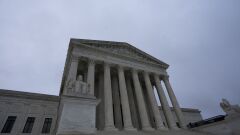With the year already past the halfway point, a review of some of the more notable developments affecting taxpayers and their CPAs is in order. The following is a brief summary of some of the major developments to give a flavor of the types of issues addressed; a full list of the 40 most important developments — selected by David De Jong, CPA, LLM, a partner at Stein Sperling Bennett De Jong Driscoll in Rockville, Maryland — follows below.
Murfam's law
In Murfam Enterprises, LLC v. Commissioner, TC Memo 2023-73, the Tax Court concluded that the value of a donated easement was within 2% of the amount claimed by the partnership on its tax return and that failure to substantially comply with reporting was due to reasonable cause. In this case, reliance on a respected CPA firm was the reasonable cause, according to the court.
"The Murphy family engaged Dixon Hughes Goodman (Dixon Hughes) — one of the largest certified public accountancy firms in North Carolina — to prepare Murfam's tax return for its tax year ending Jan. 1, 2011," the court stated. "Dixon Hughes requested from the Murphy family all the information it deemed necessary to prepare Murfam's return, and the Murphy family provided to Dixon Hughes all the information that the firm had requested."
In a separate case involving the Murphys, Murphy v. Commissioner, TC Memo 2023-72, the Tax Court determined that the taxpayers "severely overstated" the value of donated easements and were subject to penalty.
Seconds matter
While most practitioners are familiar with the "timely mailing is timely filing" rule, the Tax Court decided two electronically filed cases against the respective taxpayers. In Nutt v. Commissioner, 160 TC No. 10, the Tax Court dismissed a petition because it was electronically filed five minutes after the deadline in the jurisdiction where taxpayers were located. The petition was filed from Alabama at 11:05 PM CST, the time zone where the taxpayers were located. But the court's filing system shows that it received the petition at 12:05 AM EST, the time zone in Washington, D.C., where the Tax Court is located.
Likewise, in Sanders v. Commissioner, the Tax Court dismissed a petition that was filed 11 seconds after midnight. According to the court, an electronically filed petition is considered filed when it is received by the Tax Court in Washington, D.C.
FBAR clarity
In a decision that could have gone either way, the Supreme Court cleared up the confusion regarding the FBAR penalty. In a 5-4 decision, it reversed the Fifth Circuit's interpretation of the Bank Secrecy Act that the penalty for non-willful violations is to be tabulated per year, not per account. The result was an enormous reduction in liability for the taxpayer. Now that the IRS has clearer guidance, some professionals predict that it will start looking more closely at the willful versus non-willful standard in filing the form late or incorrectly.
More timing issues
In affirming the Tax Court's decision concluding that the IRS Notice of Final Partnership Administrative Adjustment was timely, the en banc court held that neither Seaview Trading LLC's fax of a copy of their delinquent 2001 tax return to an IRS revenue agent in 2005, nor mailing a copy to an IRS attorney in 2007, qualified as a "filing" of the partnership's return. Therefore the statute of limitations did not bar the IRS readjustment of the partnership's tax liability.

























